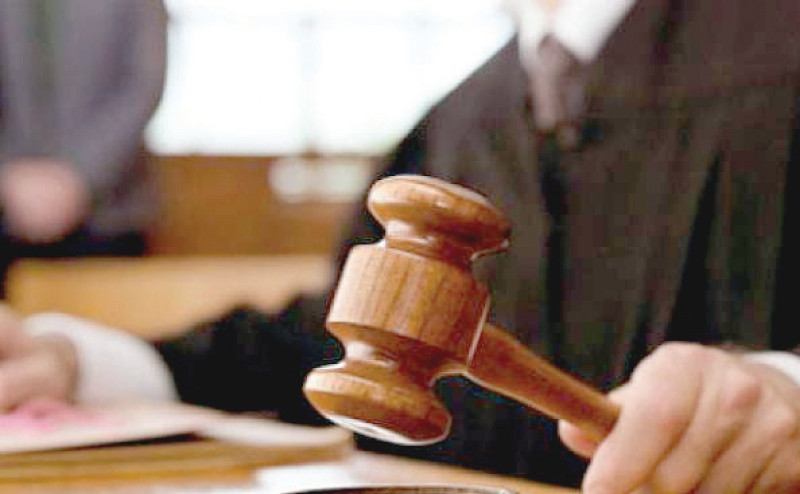
The Supreme Court while accepting the nomination papers of PTI candidate Tahir Sadiq noted that the right to form or be a member of a political party under Article 17(2) of the Constitution includes not only right to contest elections but also the right to vote for the candidate of one’s choice.
"When viewed against the backdrop of the constitutional value of ‘political justice’, Article 17(2) remains hollow unless it also recognizes the right of citizens to choose their representatives fairly and freely from amongst the candidates. The right of citizens to participate in national elections as voters is the core of the democratic form of government," a judgment authored by Justice Syed Mansoor Ali Shah said.
"This right is also an expression of the choice of the citizens, which finds further support under Article 19 of the Constitution. In exercise of these fundamental rights, citizens shape their destiny by forming the government they want," it added.
A three-judge bench led by Justice Shah heard a case related to elections.
The judgement noted that elections stand as a manifestation of the collective will of a nation, reflecting the diverse voices and choices of its citizens.
"In this democratic process, individuals exercise their right to vote, contributing to the formation of a representative government. The rights involved are not only of those participating in the elections but also of the public. The courts, in their role as guardians of democracy and fundamental rights, should approach electoral matters with circumspection, ensuring that their interventions uphold the democratic principles upon which the nation thrives and the fundamental rights of citizens to contest elections and vote for the candidates of their choice. ‘The right to vote freely for the candidate of one’s choice is the essence of a democratic society, and any restrictions on that right strike at the heart of representative government’," the judgment said.
"The working of democracy depends on whether the people can decide the fate of the elected form of government. It depends on the choices that people make in different ways," it added.
"This choice of people cannot be compromised, as their mandate in elections changes the destinies of government. Through the electoral process and voting, citizens participate in democracy. By voting, citizens take part in the public affairs of the country. Thus, citizens by voting enjoy their right to choose the composition of their government by exercising their choice and ability to participate."
The judgment noted that the qualification and disqualification of a candidate become crucial, as it involves both the right of candidates to contest the election and the right of voters to choose their preferred candidate.
"The aim of prescribing qualifications and disqualifications for candidacies to contest elections is to maintain the integrity and effectiveness of the political process. They are designed to ensure that
individuals holding public office meet certain standards. In a well-functioning democracy, the criteria for qualifications and disqualifications are clearly defined, publicly known and uniformly
applied," the judgment read.
Read: Proclaimed offender eligible to participate in polls: SC
"Qualifications and disqualifications of a candidate for the electoral process must therefore be clearly spelled out in the Constitution or the law. Otherwise, electoral laws must be interpreted in favour of enfranchisement rather than disenfranchisement so that maximum choice remains with the voters to elect their future leadership," it added.
"With this approach rooted in the high constitutional rights and values, the courts are to deal with the matters of acceptance or rejection of the nomination papers filed for contesting elections.
"Since the petitioner’s nomination paper has been rejected on the ground of his being a proclaimed offender, we in the course of the hearing asked the learned counsel for the ECP to show the order made
and the proclamation issued against the petitioner under Section 87 of the Code of Criminal Procedure 1898 (“Cr.P.C.”) but he was unable to refer to any such order and proclamation. We then called upon the
objector, who was present in court, to tell us the source of his objection. He frankly submitted that some of his friends had mentioned it to him, but he has no document to establish that the petitioner is a proclaimed offender. Hence, there is nothing on the record that the petitioner is a proclaimed offender."
The judgment noted that it was needless to say that in the absence of proceedings taken under Section 87, CrPC, an accused cannot be said or treated to be a proclaimed offender.
"Further, as the rule of declining discretionary reliefs to a proclaimed offender is one of propriety when the same is confronted with a right, it is the right, not the rule of propriety, that prevails. It is also important to note that the disadvantage, if any, for being a proclaimed offender ordinarily relates only to the case in which a person has been so proclaimed, and not to the other cases or matters which have no nexus to that case," the judgment said.
"For instance, a proclaimed offender is not disentitled to institute or defend a civil suit, or an appeal arising therefrom, regarding his civil rights and obligations. The same is the position with the civil right of a person to contest an election; in the absence of any contrary provision in the Constitution or the Elections Act 2017 (“Act”), his status of being a proclaimed offender in a criminal case does not affect his said right," it added.
"Articles 62 and 63 of the Constitution read with Sections 231 and 232 of the Act provide for qualification and disqualification of a candidate, which does not mention that a “proclaimed offender” is
disqualified from being elected or from being a member of Parliament.
The grounds provided for rejection of a nomination paper in Section 62(9) of the Act also do not empower the Returning Officers to reject the nomination paper of a candidate on the ground of his being a proclaimed offender."
The judgment maintained that although no provision of the Act had been pointed out to the court that required necessary presence of the candidate during the electoral process, the court may observe that if there is any such provision, the absence of the candidate may have its own consequences under that provision, but his nomination paper cannot be rejected on such ground unless the legislature so provides in Section 62(9) of the Act.
"Therefore, the High Court is found to have made a legal error in rejecting the petitioner's nomination paper on the ground of his being allegedly a proclaimed offender," the judgment said.
"Orders of the High Court are set aside and the nomination paper of the petitioner for the seat of a Member of the National Assembly from NA-49, Attock-I, stands accepted. The ECP shall ensure that all the necessary steps to be taken in the electoral process are completed forthwith so that the petitioner can contest the election on the scheduled date for the said seat, without fail."












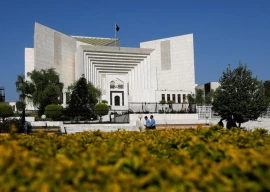

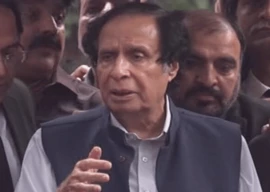

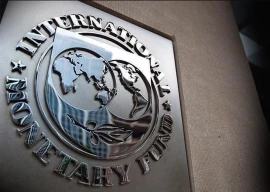



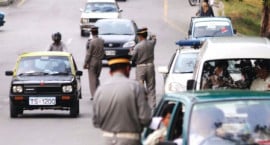





COMMENTS
Comments are moderated and generally will be posted if they are on-topic and not abusive.
For more information, please see our Comments FAQ